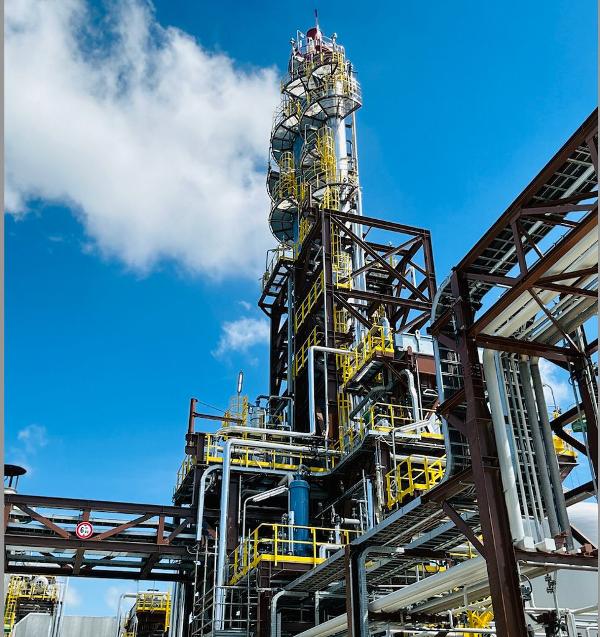The significant support for carbon capture and storage (CCS) projects adopted by countries including the United States and Canada in recent months have highlighted the importance of CCS in meeting international climate goals. Indeed, the growth of CCS technology will allow for a transition to net-zero emissions while maintaining the viability of industries that have long sustained communities and workforces around the world – ensuring that decarbonization takes place in a just and orderly fashion.
CCS provides an opportunity to reduce emissions in almost every heavy emitting sector across North and South America – power generation, cement, steel and fertilizer manufacturing and mining, in particular – as well as for hydrogen fuel production from natural gas and addressing emissions from the production and consumption of fossil fuels.
To be clear, a global net-zero transition requires using all the tools we have at our disposal. But CCS is the only proven solution we have today that can dramatically cut CO2 emissions from heavy industries that are the pillars of our economy. It is worth pointing out that investment in this emission reduction pathway has been virtually non-existent compared to the trillions of dollars that have been spent on wind turbines, solar panels, electric vehicles and energy efficiency programs so far this century – during which time greenhouse gas emissions have continued to climb as and absolute fossil fuel consumption has grown and fossil energy sources continue to supply more than 80 per cent of the world’s energy needs.
What is often lost in the debates over how to create the right conditions for investment in CCS are the longer-term costs to society if we do not proceed on pace with the massive build-out that is required to meet Paris Agreement commitments. At the highest level, the world can’t afford to ignore CCS as a key tool in fighting climate change. The International Energy Agency estimates that CCS will be required for as much as one-quarter of the greenhouse gas emission (GHG) reductions necessary by 2050, while the UN’s Intergovernmental Panel on Climate Change (IPCC) forecasts that the cost of climate mitigation could more than double without the application of CCS technologies.
It is also important to look beyond the direct cost of building a CCS facility, and consider how the cost of CCS impacts end users of the products we all rely on for daily life. A recent study by Norwegian and Dutch experts concluded that implementing CCS on large-scale industrial projects yields significant CO2 reductions at minimal cost to the public over the long term. The researchers concluded that CCS is a relatively cheap emissions reduction solution for the end users of the commodities that heavy-emitting industries provide.
North America has been the proving ground for the application of large-scale CCS on 10 facilities in the U.S. with a combined capacity to capture more than 25 million tonnes annually. In addition, the Petra Nova facility in Texas, which is set to return into service later this year, captured over 3.5 million tonnes of CO2 during it first three years of operations and eclipsed its projected 90% capture rate.
Meanwhile, Canada has been a leader in the first generation of global CCS development, with five of the 30 commercial CCS projects in the world today. These include SaskPower’s Boundary Dam Unit 3 CCS facility — the world’s first fully integrated CCS facility on a coal-fired power plant that has captured more than 5 million tonnes of CO2 so far — while the Quest CCS facility operated by Shell has captured and safely sequestered more than 7 million tonnes from the Scotford Refinery near Edmonton since 2015. Canada is also home to the largest CO2 pipeline on the planet - the Alberta Carbon Trunk Line, and the world’s largest storage project for human-made CO2 in the Weyburn-Midale region of southeast Saskatchewan that has permanently sequestered more than 38 million tonnes of CO2 since 2000.
CCS is a pillar of the climate change strategies of both the U.S. and Canada, as both nations have significant fossil fuel reserves and infrastructure, making CCS an attractive option to reduce emissions while sustaining their foundational energy sectors. The adoption of unprecedented incentives for CCS development through the Inflation Reduction Act in the U.S. is expected to spur significant investment in CCS projects across the country. The interest is particularly high in the power generation sector where new rules proposed by the U.S. Environmental Protection Agency could limit greenhouse gas emissions from coal and natural gas-fired power plants by 90 per cent by 2040. In Canada, the federal government’s current emissions reduction plan expects national CCS capacity to more than triple, adding facilities to capture and store at least 15 million tonnes per year by 2030. This includes an ambitious plan by the country’s largest oil producers to undertake one of the world’s largest CCS projects in order to achieve net-zero emissions by 2050.
In South America, countries like Brazil and Colombia are also exploring CCS as a means to decarbonize their energy sectors. Brazil is actively studying the feasibility of CCS projects, particularly in the offshore oil and gas sector, to complement its significant renewable energy and biofuel industries. Colombia, a major coal producer, has initiated projects to capture and store CO2 emissions from coal-fired power plants to promote energy security while supporting the transition to cleaner energy sources.
What is clear is that it is time to get on with proving the enormous potential of CCS to fight climate change in truly sustainable manner. The growing interest in CCS reflects a pragmatic and realistic approach to transforming our heavy-emitting industries that employ millions of people and generate massive economic wealth while paving the way for a low-carbon future. Our children are counting on us to realize this once-in-a-generation opportunity to truly make a difference.
James Millar is President and Chief Executive Officer of the International CCS Knowledge Centre, headquartered in Regina, Saskatchewan, Canada.




















